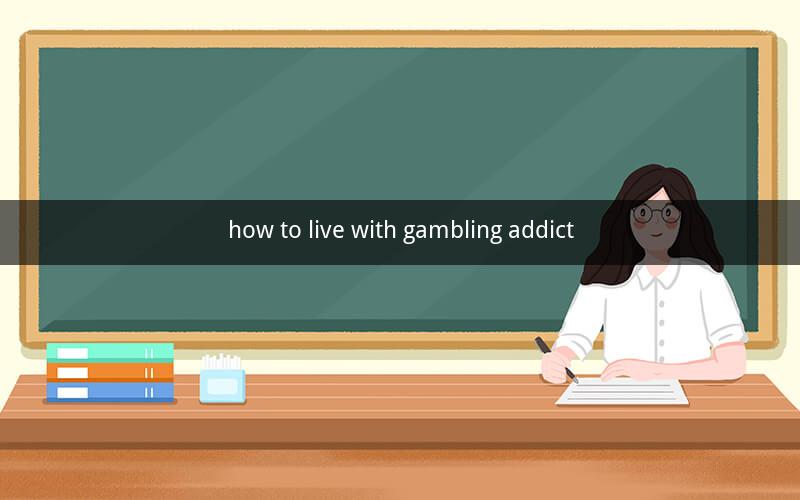
Table of Contents
1. Understanding the Problem
2. Signs of a Gambling Addiction
3. Communicating with the Addict
4. Support Systems and Resources
5. Setting Boundaries
6. Financial Management
7. Professional Help
8. Healing Relationships
9. Legal and Ethical Considerations
10. Long-Term Recovery
---
1. Understanding the Problem
Living with a gambling addict can be incredibly challenging. It’s essential to first understand the nature of the addiction. Gambling addiction is a behavioral disorder characterized by the inability to control the urge to gamble, despite harmful consequences. It’s crucial to recognize that addiction is a disease and requires compassion and understanding.
2. Signs of a Gambling Addiction
Identifying the signs of a gambling addiction is the first step in helping your loved one. Look out for these common indicators:
- Secretive behavior, such as hiding gambling activities or lying about time spent gambling.
- Missing work or school, or failing to fulfill responsibilities.
- Financial strain, including debts, loans, or selling possessions to fund gambling.
- Emotional changes, such as irritability, anxiety, or depression.
- Denial or rationalizing the behavior.
3. Communicating with the Addict
Effective communication is key to addressing the addiction. When speaking with the addict, consider the following:
- Choose a quiet, private setting without distractions.
- Express your concerns using "I" statements to avoid sounding accusatory.
- Listen actively and without judgment.
- Avoid confrontations or arguments.
- Offer support and encourage them to seek help.
4. Support Systems and Resources
Support is crucial for both the addict and their loved ones. Here are some support systems and resources:
- Gamblers Anonymous: A 12-step fellowship for those struggling with a gambling addiction.
- Gam-Anon: A support group for family and friends of gamblers.
- Professional therapists: Therapists specializing in addiction can provide guidance and support.
5. Setting Boundaries
Establishing boundaries is vital for maintaining your own well-being. This may include:
- Limiting contact with the addict if necessary.
- Setting financial boundaries to prevent enabling behavior.
- Seeking support for yourself to cope with the stress.
6. Financial Management
Financial management is crucial to prevent further damage. Consider:
- Taking control of financial matters.
- Exploring debt counseling services.
- Creating a budget to manage household expenses.
7. Professional Help
Professional help is often necessary for recovery. This may include:
- Individual therapy to address underlying issues.
- Family therapy to improve communication and healing.
- Residential treatment programs for severe cases.
8. Healing Relationships
Healing relationships is a process that takes time. Consider:
- Forgiving the addict for past mistakes.
- Seeking support from friends and family.
- Rebuilding trust gradually.
9. Legal and Ethical Considerations
Legal and ethical considerations may arise, such as:
- Understanding the legal implications of gambling addiction.
- Seeking legal advice if necessary.
- Making ethical decisions regarding financial matters.
10. Long-Term Recovery
Long-term recovery involves ongoing support and maintenance. Consider:
- Encouraging the addict to attend support groups.
- Maintaining open communication with the addict.
- Continuing to seek support for yourself.
---
10 Questions and Answers
Q1: How can I tell if my loved one has a gambling addiction?
A1: Look for signs such as secretive behavior, financial strain, and emotional changes. If you suspect an addiction, it’s important to address it promptly.
Q2: Should I confront my loved one about their gambling addiction?
A2: Confrontation can be effective if done in a supportive and non-accusatory manner. It’s essential to express your concerns clearly and listen actively to their perspective.
Q3: Can I help my loved one without enabling their addiction?
A3: Absolutely. Setting boundaries, such as limiting financial support, can prevent enabling behavior and encourage the addict to seek help.
Q4: Are there any medications that can help treat gambling addiction?
A4: While there are no specific medications for gambling addiction, some medications may help manage underlying mental health issues that contribute to the addiction.
Q5: Can gambling addiction be cured?
A5: Gambling addiction is a chronic condition, but it can be managed and controlled with appropriate treatment and support.
Q6: How can I support my loved one during their recovery?
A6: Support your loved one by being patient, understanding, and encouraging. Encourage them to attend support groups and seek professional help.
Q7: What should I do if my loved one refuses to seek help?
A7: If your loved one refuses help, continue to express your concerns and offer support. Consider seeking professional advice on how to handle the situation.
Q8: Can a gambling addiction affect my children?
A8: Yes, a gambling addiction can have a significant impact on children, including emotional and financial consequences. It’s important to address the addiction for the well-being of the entire family.
Q9: How long does it take to recover from a gambling addiction?
A9: Recovery from a gambling addiction can vary from person to person. Some may experience immediate relief, while others may require ongoing support and treatment.
Q10: Can I recover from the emotional toll of living with a gambling addict?
A10: Yes, you can recover from the emotional toll. Seeking support from friends, family, or professionals can help you cope with the stress and rebuild your life.